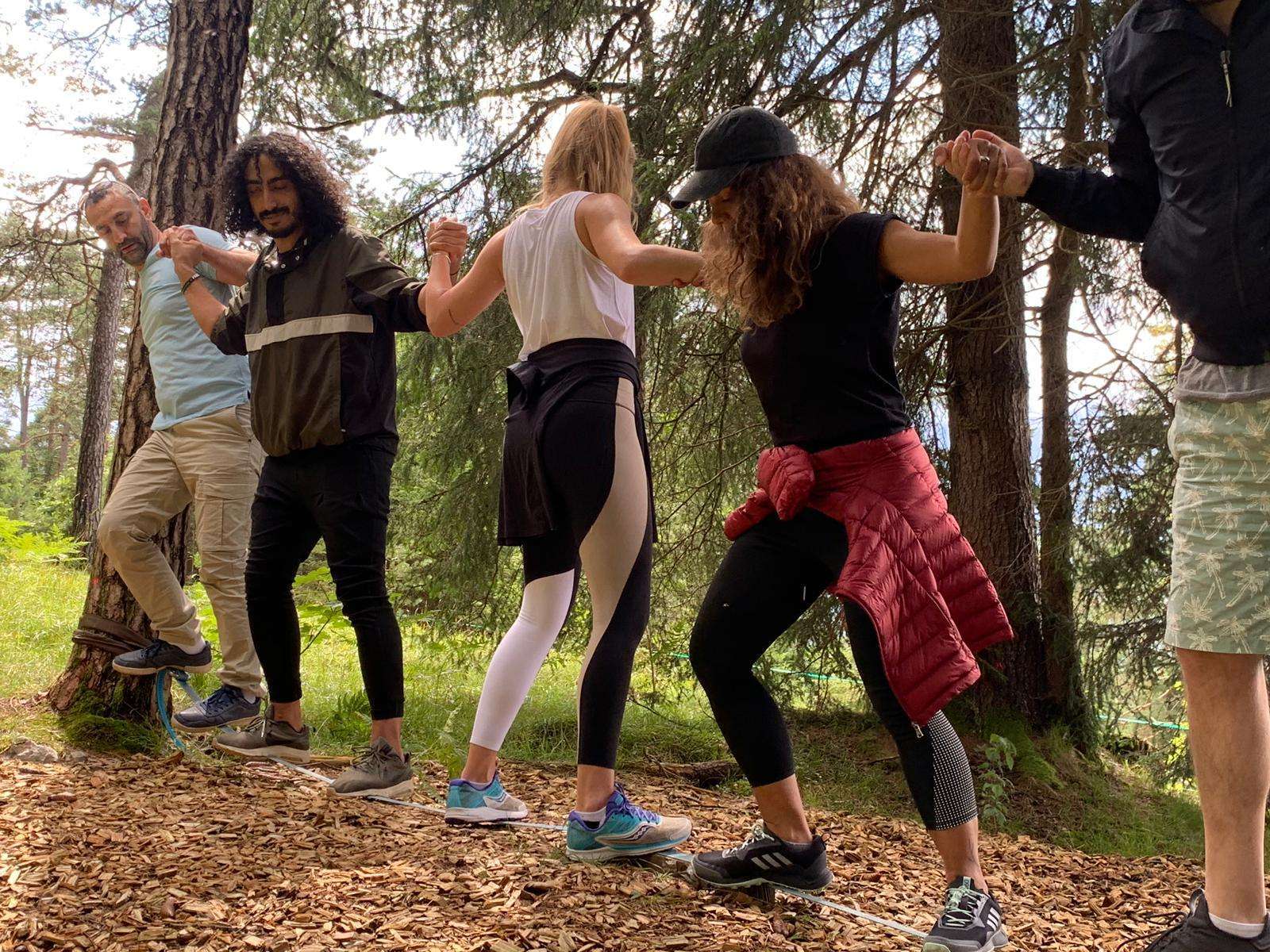
A major facet of any DT Global program is the imperative to be field-driven. Whether fostering conditions for long-term development or responding to complex crises, our staff strive foremost to understand the country context and provide field teams and local partners with the greatest possible support. This ethos, known internally as “live the field,” moves our teams to accomplish more every day on behalf of the communities in which we work.
To give their best, our staff know they must first be able to rely upon one another, challenge assumptions, and constantly strive to perform better as a team. Years of programming in high pressure, non-permissive environments have proven that doing right by our local partners requires constant attention to team dynamics, and accountability to each other as well as our wider program mission.
In recognition of this fact, one of DT Global’s Syria-focused programs recently held a three-day learning and team building summit in southern Germany. Our Program Director put it best, explaining that “The way we communicate with one another ultimately determines the quality of the program we implement. Our goal was to improve the way we communicate with one another, learn more about one another, and improve how we interact as a team on a daily basis knowing any improvement would yield a substantial benefit to the program.” The summit included program staff from both the home and field offices, and allowed staff to take a step back from daily operations to strengthen collaboration, evaluate program successes, discuss challenges, and articulate lessons learned in the field to adapt for use in the program’s continuing response to the Syrian crisis.
Program staff from both offices collectively designed the summit agenda, ensuring that all staff—not just leadership—had a voice in shaping the agenda. Staff chose to focus on team processes and program close-out strategy. The event combined classroom sessions with facilitated outdoor team building exercises that challenged staff to explore new methods of programming, improve communication, and build trust.
Classroom sessions focused on building trust and understanding, and breaking down barriers to open and honest communication. During classroom sessions, our staff used a variety of discussion formats, including group meetings, breakout sessions, and individual asides to learn more about each other’s personal backgrounds and how to support each other in their professional roles. These exchanges heightened awareness of the diverse attributes, individual contributions, and common dedication that defines our team. Staff also addressed group challenges like differences in communication styles and work strategies, and the impact of daily stressors from managing programs in conflict areas.
Our team designed the outdoor activity component of the summit to reinforce themes from classroom discussions by requiring staff to consider differences in leadership styles, problem solving, and how to work together to overcome challenges using assets of the entire team. Staff emerged from classroom and outdoor team building sessions with greater clarity on team dynamics and a commitment to improve communication, trust, and the program’s overall work environment.
We followed the team building sessions with a strategic review of program performance and an exchange of best practices with a staff member from one of DT Global’s Iraq programs. The review took stock of recent accomplishments and contextualized current strategy within the program’s evolving history of support to Syrian civil society organizations. Our staff examined a number of best practices from Iraq for potential application within their activities, including processes to manage grievances in areas affected by ethnic tension. Parallels between Syria and Iraq’s contexts resonated with staff and helped generate new activity concepts.
The team felt the positive outcomes of the learning summit across the program. Our staff, in follow-up discussions and through a post-summit evaluation, noted the importance of periodically pausing to reflect on how to better support one another, which in turn enables them to better support our local partners, as a crucial step towards implementing impactful programs. The efficacy of our programs relies on our local partners receiving high-caliber support from our staff. While unexpected challenges will routinely interrupt even the best laid plans, having steadfast support, trust, and honest feedback from colleagues allows our staff to collectively respond and overcome or mitigate issues.
The learning summit further reminded staff to continually assess whether our programs are achieving desired outcomes and whether these outcomes remain relevant to the conditions we seek to affect. Willingness to embrace course correction and participate in continued learning are hallmarks of DT Global’s effort to pioneer innovative models for development. Equally important is our commitment to our staff to ensure they are empowered to shape team norms and processes as part of our goal to build a constantly better company. Regular learning summits provide key opportunities for staff to reinforce this principle and remain a key tool for ensuring DT Global leads our industry on staff care, professional development, and innovation.